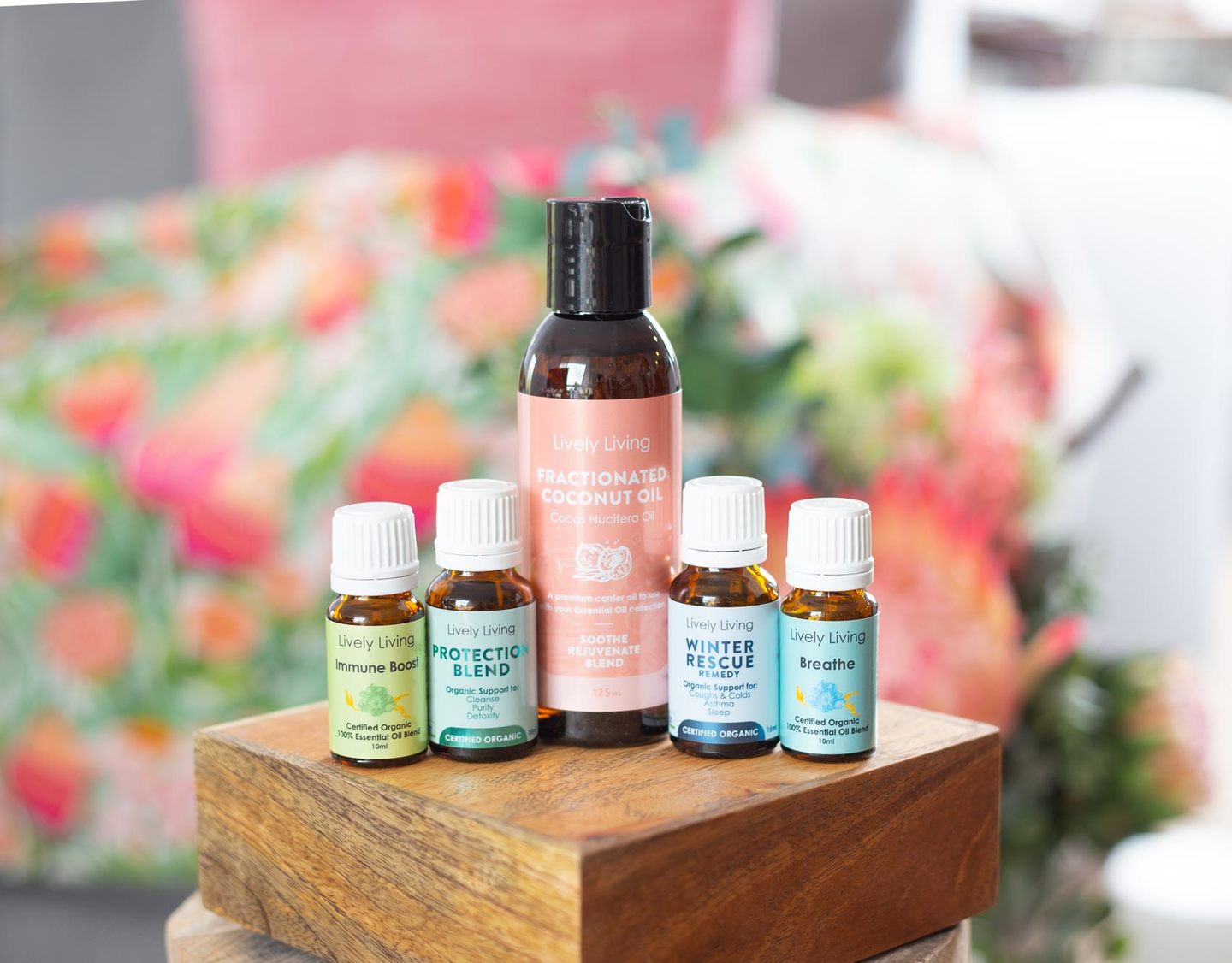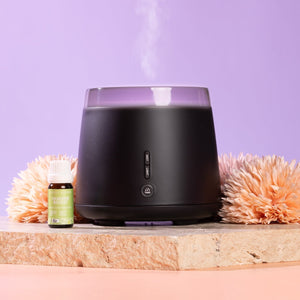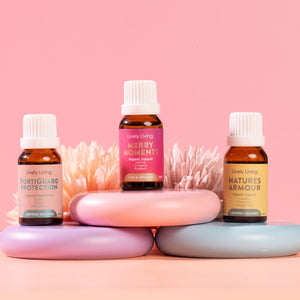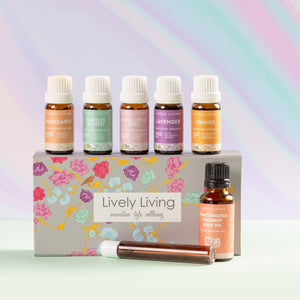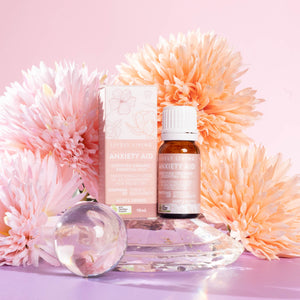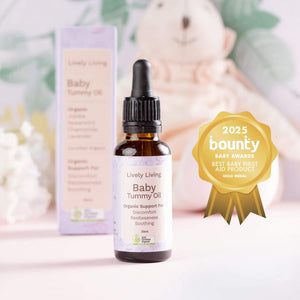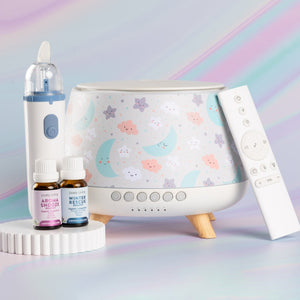What is a Carrier Oil? Your Complete Guide to Safe & Effective Application
Have you ever wondered what is a carrier oil and why it’s always mentioned alongside essential oils? You’re in the right place. These oils are more than just a trendy addition to your wellness routine.
Think of carrier oils as the trusty companions to essential oils. Essential oils are potent, concentrated extracts from plants, packed with aromatic and therapeutic compounds. However, they can be too strong for direct skin contact.
That’s where carrier oils come to the rescue. Essentially, they're gentler, less concentrated oils, usually derived from nuts, seeds, or kernels, that dilute essential oils. This makes them safe for topical application, allowing for a more comfortable and safer experience.
Table Of Contents:
- How Do Carrier Oils Work with Essential Oils?
- The Perks of Using Carrier Oils
- Exploring Popular Carrier Oils
- Creating a Safe and Effective Blend: Carrier Oil Ratios
- FAQs about What is a Carrier Oil?
- Conclusion
How Do Carrier Oils Work with Essential Oils?
Imagine trying to spread a single drop of honey evenly over a slice of toast–challenging, right? Carrier oils act similarly with essential oils, making them easier to spread and absorb.
They help to 'carry' the potent essential oils across your skin's surface. Plus, these helpful oils also offer their own unique benefits.
Carrier oils can be super hydrating, nourish your skin with vitamins, and some even have calming properties, making them the perfect companion to essential oils in aromatherapy.
The Perks of Using Carrier Oils
So, you're ready to try essential oils? You’ll quickly realize that understanding carrier oils is an important part of the experience.
Safety First: Preventing Irritation
Essential oils are super potent. Using them directly on your skin can lead to irritation, redness, or even burns because they contain a high concentration of active compounds.
That’s why carrier oils are so important. Carrier oils help dilute the essential oils, creating a safe and enjoyable experience.
Boosting Absorption for Maximum Benefits
Ever applied lotion and felt like it just sat on your skin? Carrier oils, like fractioanted coconut oil and apricot kernel oil, help essential oils penetrate deeper into the skin, delivering their amazing properties effectively. Some people believe this boosts the overall effectiveness of essential oils.
As a bonus, certain oils such as sunflower oil, can actually form a protective shield over the skin, acting as a barrier to irritants while delivering moisture.
Moisturizing and Nourishing Your Skin
Carrier oils aren't just helpful carriers; they also double as excellent moisturizers. Think of them like a tall drink of water for your skin.
Carrier oils are full of fatty acids that help hydrate and nourish the skin, leaving it feeling soft and smooth. Some, like olive oil, are known for their rich texture and ability to deeply moisturize, making them a popular choice in skincare.
Exploring Popular Carrier Oils
With so many options available, let’s break down some of the most beloved carrier oils. At Lively Living we stock Fractionated Coconut Oil as we believe it to be the best in benefits overall.
| Carrier Oil | Benefits | Ideal for |
|---|---|---|
| Coconut Oil | Antimicrobial, moisturizing, versatile | Skincare, hair care, massage |
| Sweet Almond Oil | Gentle, nourishing, readily absorbed | Sensitive skin, massage, hair care |
| Jojoba Oil | Balances oil production, soothing, anti-inflammatory | Acne-prone skin, hair care, massage |
| Argan Oil | Rich in vitamins A and E, moisturizing, luxurious | Dry skin, hair care, anti-aging |
| Grapeseed Oil | Lightweight, antioxidant, antimicrobial, odorless | Massage, DIY beauty recipes, sensitive skin |
1. Fractionaed Coconut Oil: The Tropical Multitasker
This natural oil, obtained from mature coconuts, has had a process to make it the perfect oil to apply essential oils to the skin . it is non greasy and has no strong and is super nourishing to the skin.
People have been using coconut oil as a moisturizer for centuries.
Beyond its culinary uses, coconut oil shines in aromatherapy and skincare thanks to its antimicrobial properties, particularly from its high lauric acid content .
2. Sweet Almond Oil: The Gentle Soother
Pressed from sweet almonds, this oil is known for being extra gentle, making it perfect for sensitive skin. It has a subtle, sweet nutty aroma, adding a pleasant sensory experience to your routine.
Sweet Almond oil absorbs beautifully without that heavy, greasy feeling, and is a frequent addition in massages, bath oils, and body creams.
3. Jojoba Oil: Mimicking Your Skin’s Natural Oils
Technically a liquid wax, Jojoba oil’s claim to fame is its similarity to your skin’s sebum. This means it’s incredible at moisturizing and balancing oil production.
Jojoba’s soothing nature makes it great for an array of uses, from hair masks to massages. Those dealing with acne may benefit from jojoba oil, which helps control oil production by mimicking skin’s natural sebum.
It also provides anti-inflammatory benefits, which can be helpful for calming irritated skin.
4. Argan Oil: Liquid Gold for Hair and Skin
Hailing from Morocco, argan oil boasts an impressive nutrient profile with vitamins A and E taking center stage. These vitamins are known for their antioxidant properties, helping to protect the skin from environmental damage.
This oil is praised for its luxurious moisturizing abilities, promoting soft skin and lustrous hair. No wonder it’s often called “liquid gold.”
5. Grapeseed Oil: The Lightweight Antioxidant Powerhouse
This odorless, lightweight oil is a by-product of the winemaking process–talk about resourcefulness. It's a popular choice for DIY beauty recipes and massages thanks to its subtle scent that doesn't overpower essential oils.
Beyond its light and almost invisible texture, grapeseed oil has powerful antioxidant and antimicrobial effects documented in research. It's rich in linoleic acid, an essential fatty acid that plays a crucial role in maintaining a healthy skin barrier.
Creating a Safe and Effective Blend: Carrier Oil Ratios
When it comes to mixing essential oils and carrier oils, you want to get the proportions just right. Using too much essential oil can be too harsh, while using too little might diminish the benefits.
Generally, a good rule of thumb for adults is to start with a 2-4% dilution for topical applications.
Here’s what that looks like:
- **2.5% dilution:** Approximately 15 drops of essential oil per 6 teaspoons of carrier oil.
- **3% dilution:** Around 20 drops of essential oil to 6 teaspoons of carrier oil.
- **5% dilution:** Approximately 30 drops of essential oil per 6 teaspoons of carrier oil.
For delicate facial skin, err on the side of caution and opt for a lower dilution, somewhere between 0.5% to 2.5% is ideal.
As a general guide for children, start with an even lower dilution of around 0.5% to 1%: that’s about 3 to 6 drops of essential oil for every 6 teaspoons of your chosen carrier oil.
While these are commonly recommended ratios, consulting with a qualified aromatherapist or healthcare professional could be the best solution to find the right dilution for your unique needs, especially when it comes to babies and children. Remember, a little goes a long way in the world of essential oils.
It is always recommended to conduct a patch test before applying any new carrier oil or essential oil blend to a larger area. Simply apply a small amount of the blend on your inner forearm or behind your ear.
Cover the area with a bandage. If you don't experience any redness, irritation, or discomfort after 24 hours, then it’s likely okay to use. Always err on the side of caution.
Purchase Lively Livings Full size Fractioned Coconut Oil & 3 Empty Roll On Bottles to make your own rollers to apply essential oils easily to the skin
FAQs about What is a Carrier Oil?
Can I Use Any Oil as a Carrier Oil?
While many plant-based oils work well as carrier oils, some oils are best to steer clear of. It’s generally advised to avoid butter, petroleum jelly, and mineral oil.
When choosing a carrier oil, consider your skin type, the essential oil you'll be using, and your desired outcome. Factors like shelf life and potential for staining (such as with darker oils like avocado oil) are also important to consider.
What is the Difference Between a Refined and Unrefined Carrier Oil?
Unrefined oils, typically labeled 'virgin' or 'extra virgin', undergo minimal processing, retaining their natural color, aroma, and nutrients. Refined oils undergo processing that filters out impurities, resulting in a lighter color and more neutral scent.
Although refined oils typically have a longer shelf life, some argue unrefined oils might contain a higher concentration of antioxidants and beneficial compounds due to less processing. Ultimately, the choice between refined and unrefined depends on personal preference and intended use.
Conclusion
Consider carrier oils the unsung heroes of the aromatherapy world. By partnering with essential oils, carrier oils ensure their safe and effective application, offering numerous advantages along the way.
These advantages include better absorption, moisturizing benefits, and an extra touch of nourishment for your skin. Now that you know how carrier oils function and their benefits, you will want to add Lively Livings Fractioaned Coconut Oil to your shopping list, or enjoy a small trial size free with our Choose Any 5 Oils Set.
Consider factors such as your specific skin type, the essential oil you’re using, and your desired outcome to make the best choice for your needs.
Lively Living are Australias leading organic essential oils, diffusers and baby wellbeing company. Based on the Gold Coast we have been supporting Australian families since 2013.
Yours in health,
Julie and the Lively Living Team









